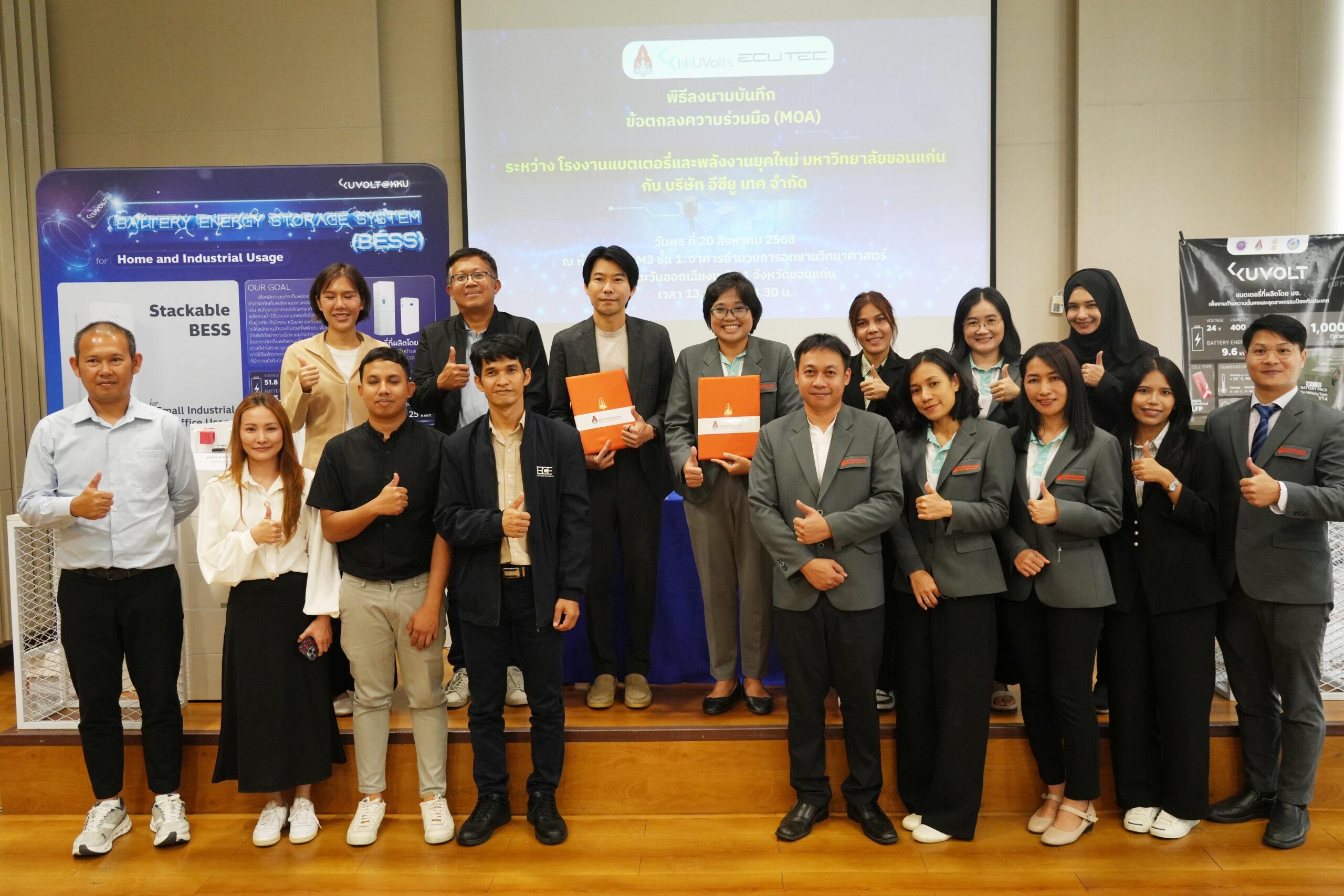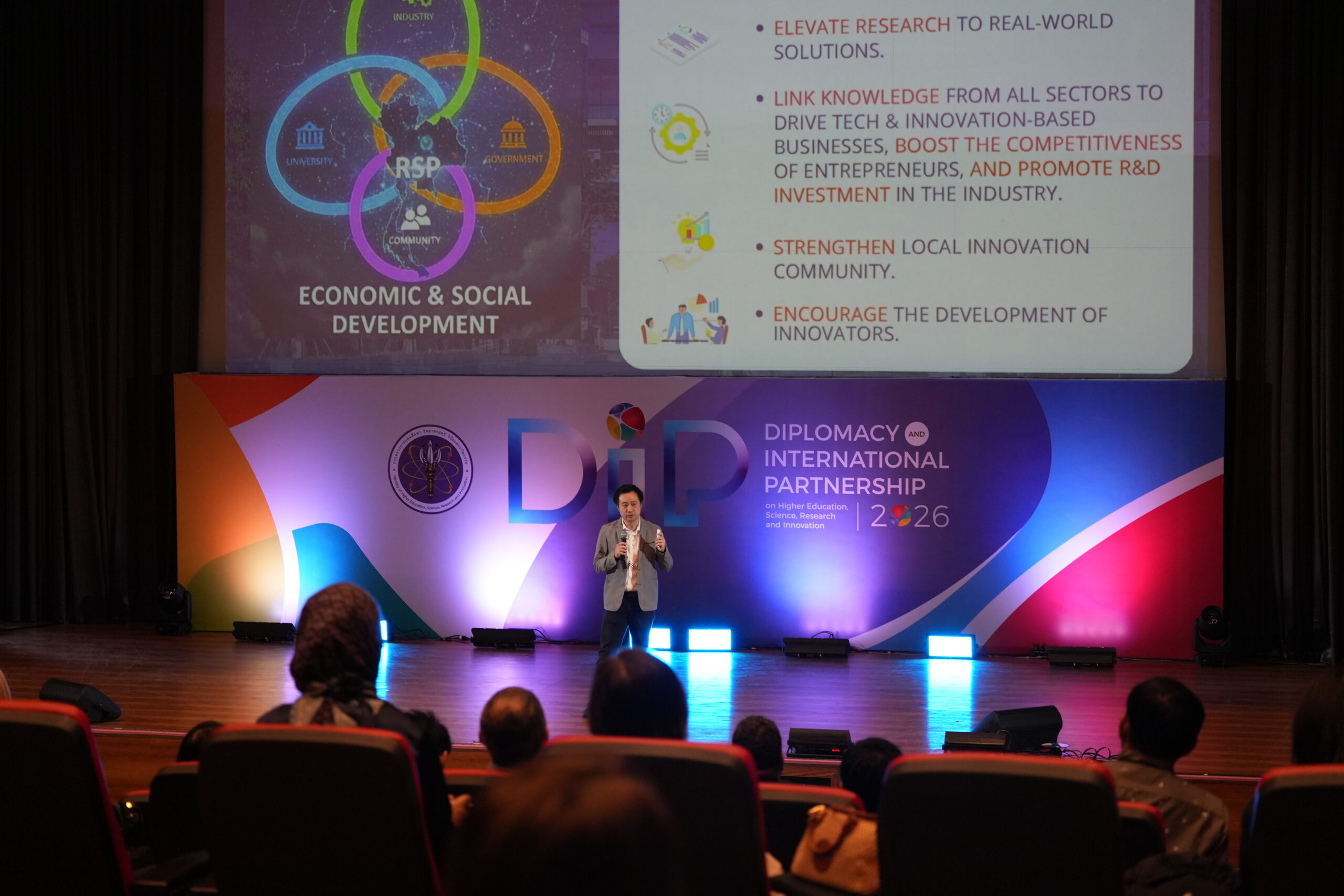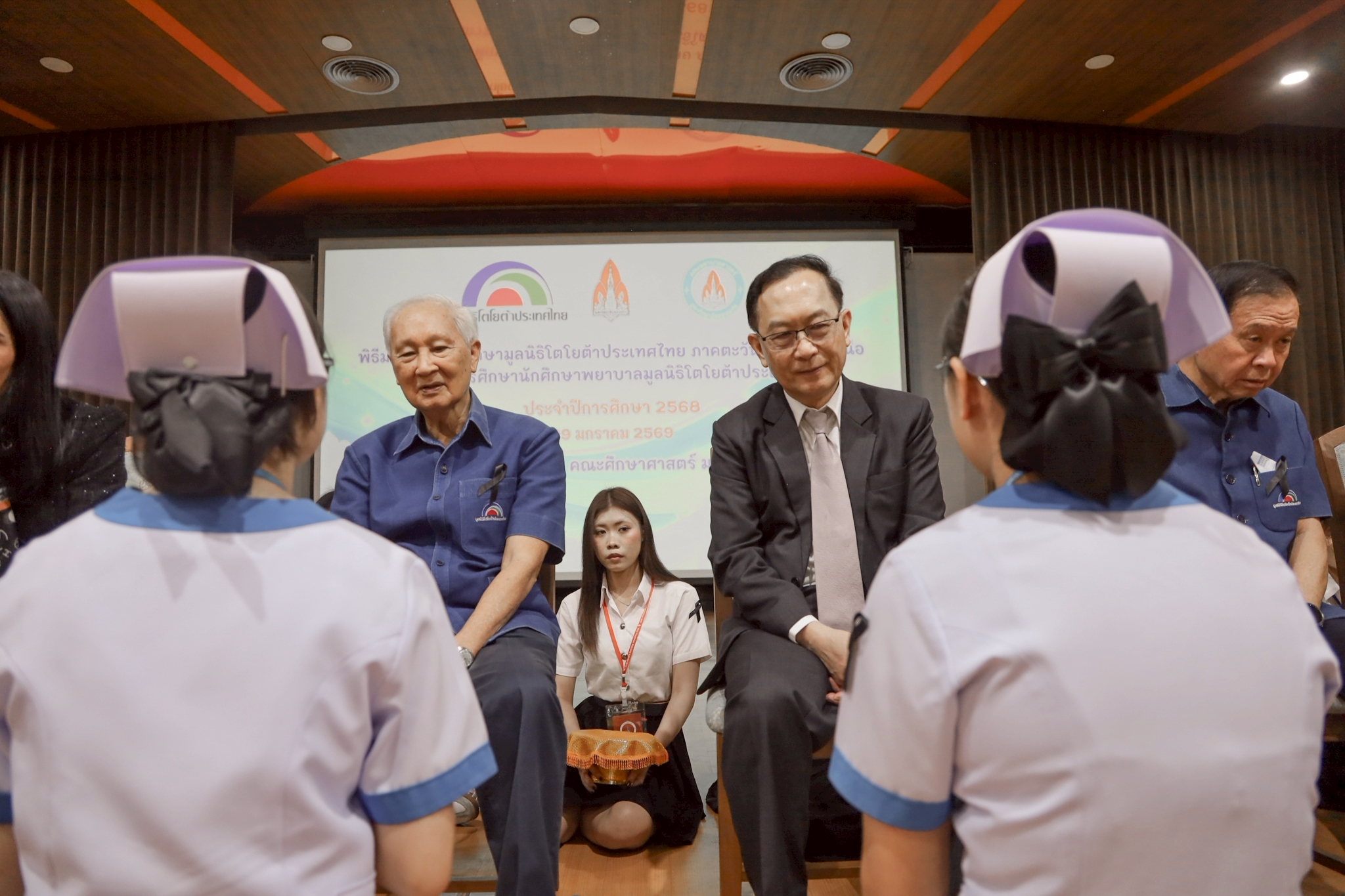KHON KAEN – Khon Kaen University’s (KKU) Battery and New Energy Factory has signed a memorandum of understanding with ECUTEC Co., Ltd. to collaboratively develop a domestic ecosystem for Thailand’s growing battery industry. The partnership, formalized on August 20, 2025, aims to reduce reliance on foreign components, support the nation’s Net Zero emissions target, and enhance security for defense-related applications.
The signing ceremony took place at the Northeastern Region Science Park in Khon Kaen province.
Assoc. Prof. Nonglak Meethong, Director of the KKU Battery and New Energy Factory, explained that the university-supported enterprise produces internationally certified, high-tech batteries under the brand kkUVolts. These products are designed for commercial energy storage systems and for use by the armed forces.
Previously, kkUVolts had to import critical electronic components, particularly the Battery Management System (BMS), from overseas. While these imported systems were inexpensive, they often lacked compatibility for specialized applications and posed significant data security risks.
The new partnership addresses this challenge by collaborating with ECUTEC, a Thai company specializing in smart electronics. ECUTEC, a startup developed under a National Science and Technology Development Agency (NSTDA) program, is an expert in domestically produced BMS and control systems, making it an ideal partner. The collaboration aims to create a battery industry ecosystem that is genuinely developed by Thai entities.
Phonphoj Wannapinyochip, Managing Director of ECUTEC, stated that his company is proud to partner with kkUVolts to build an industry driven by Thais. He highlighted that ECUTEC’s mission is to design and manufacture BMS and control systems engineered in Thailand, with capabilities for IoT and AI integration. This focus is intended to advance technology that meets national goals for safety, security, and achieving Net Zero.
“This collaboration is not just a handshake between two organizations; it is a convergence of Thai research, Thai technology, and Thai industry,” he said. “We hope this partnership will be the starting point for connecting all players in the sector to build a strong and sustainable Thai battery ecosystem.”
The agreement marks a significant step in promoting locally manufactured components to drive the country’s transition to net-zero greenhouse gas emissions. Furthermore, it supports the use of secure electronic parts, free from the risks of location tracking or data leakage, which is critical for batteries used in national security applications. The initiative reflects the potential of Thai entrepreneurs to build a self-sustaining domestic supply chain and become sustainable battery producers.








